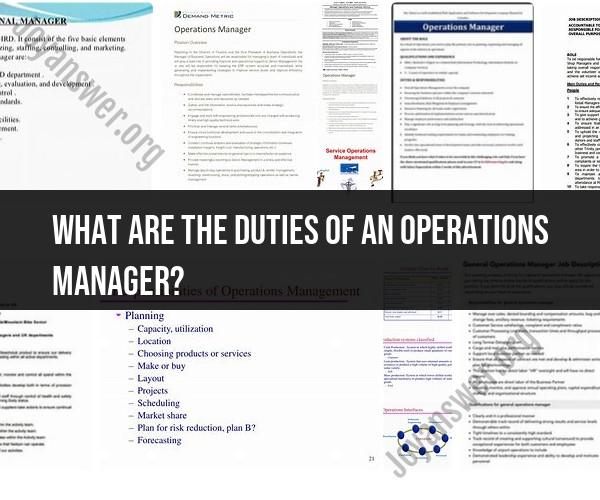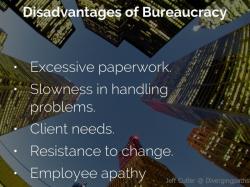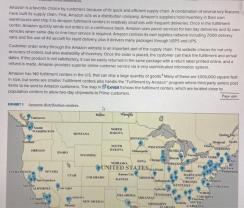What are the duties of an operations manager?
An Operations Manager plays a critical role in overseeing the day-to-day activities of an organization or department. Their responsibilities encompass a wide range of tasks aimed at ensuring efficient operations, meeting organizational goals, and driving productivity. Here are the key duties and responsibilities of an Operations Manager:
1. Strategic Planning:
- Develop and implement strategic plans and initiatives to achieve organizational goals and objectives.
- Collaborate with senior management to align operations with the overall business strategy.
2. Team Leadership:
- Recruit, train, supervise, and mentor staff members, ensuring they have the skills and resources needed to perform their roles effectively.
- Foster a positive and productive work environment.
3. Process Improvement:
- Continuously assess operational processes and identify opportunities for improvement in efficiency, quality, and cost-effectiveness.
- Develop and implement process enhancements and best practices.
4. Budget Management:
- Prepare and manage budgets for operational departments, ensuring efficient resource allocation and cost control.
- Monitor financial performance and take corrective actions as needed.
5. Resource Allocation:
- Allocate resources, including personnel, equipment, and materials, to meet operational demands and project requirements.
- Optimize resource utilization to achieve efficiency and cost savings.
6. Performance Metrics:
- Establish key performance indicators (KPIs) and metrics to measure operational performance.
- Monitor and analyze performance data to make informed decisions and drive improvements.
7. Quality Assurance:
- Implement quality control and assurance measures to maintain product or service quality and compliance with standards.
- Address quality issues promptly and effectively.
8. Supply Chain Management:
- Manage the procurement, inventory, and distribution of goods or materials to ensure a seamless supply chain.
- Build and maintain relationships with suppliers and vendors.
9. Risk Management:
- Identify and assess operational risks and develop risk mitigation strategies.
- Ensure compliance with safety regulations and industry standards.
10. Project Management:- Oversee and coordinate projects and initiatives, from planning and execution to monitoring and completion.- Ensure projects are delivered on time and within budget.
11. Communication:- Facilitate effective communication within the organization, ensuring that information flows smoothly between departments and teams.- Collaborate with other departments to meet cross-functional goals.
12. Customer Satisfaction:- Monitor customer feedback and address concerns or issues related to operations.- Strive to improve customer satisfaction and retention.
13. Compliance and Regulations:- Ensure that operations adhere to all relevant laws, regulations, and industry standards.- Stay updated on changes in regulations that may impact the business.
14. Crisis Management:- Develop and implement contingency plans for handling emergencies or unexpected disruptions to operations.- Lead response efforts in crisis situations.
15. Reporting and Documentation:- Prepare and present reports to senior management and stakeholders on operational performance, goals, and achievements.- Maintain accurate records and documentation related to operations.
The role of an Operations Manager is diverse and dynamic, requiring a combination of leadership, problem-solving, and strategic thinking skills. They are responsible for ensuring that an organization's day-to-day activities run smoothly, efficiently, and in alignment with its strategic objectives. Effective Operations Managers play a crucial role in driving organizational success and achieving operational excellence.













